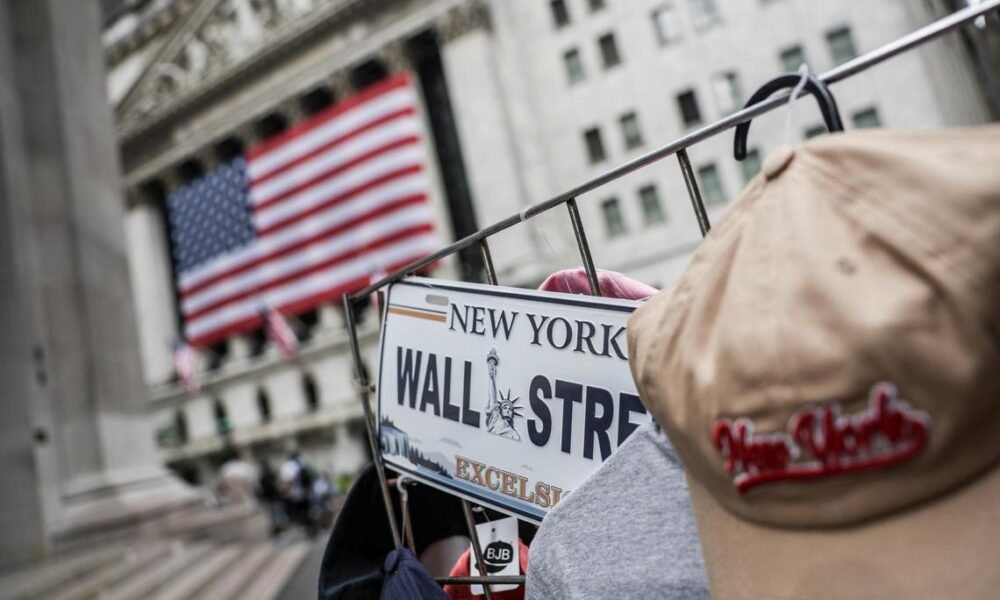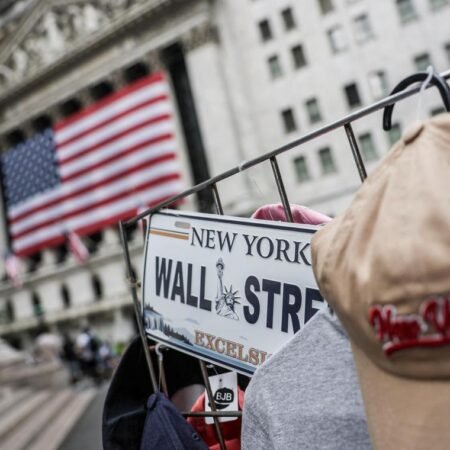NEW YORK – The second-quarter earnings season is off to a ripping start, with consumer strength powering resilient corporate profits. In the stock market, however, the reaction has been fairly quiet, an ominous sign that much of the good news is priced in – and investors are punishing disappointments.
Take financials, which reported blockbuster numbers this week that failed to juice their shares. “Financials have crushed 2Q earnings expectations with a 94.4 per cent per cent beat rate so far, yet stocks saw only muted reactions as investors largely anticipated the results,” Bloomberg Intelligence strategists Gina Martin Adams and Michael Casper wrote in a July 18 note.
Similarly, streaming platform Netflix exceeded outlooks in every major metric, and United Airlines Holdings was upbeat about travel demand gaining steam. Yet, investors largely reacted to these numbers with a collective shrug. Netflix closed down over 5 per cent on July 18 despite its strong performance.
“With stock valuations where they are, all the good news is priced into the market now,” said Mr Greg Taylor, chief investment officer at PenderFund Capital Management.
What’s more, the market is penalising results that fall short of expectations by the most in nearly three years, data compiled by Bloomberg Intelligence shows.
“The margin of error here is small,” said Mr Michael Arone, chief investment strategist at State Street Investment Management. “When the valuations are high and you miss, the punishment is more severe.”
Combined profit and revenue beats, on the other hand, are being rewarded by only the most in a year.
“At an index level, good earnings are not likely the broad market catalyst investors are waiting for,” said Mr Julian Emanuel, chief equity and quantitative strategist at Evercore ISI.
The S&P 500 Index closed near an all-time high on July 18, after notching seven new records in just 15 sessions. The equities benchmark is trading at 22 times expected 12-month profits and is fast approaching the level it hit in February, before April 2 when President Donald Trump unleashed his global tariffs that weighed on sentiment.
This week, investors will get results from a slew of Big Tech giants including Alphabet and Tesla, industrial behemoth Honeywell International, chemicals maker Dow, defense contractors Lockheed Martin and Northrop Grumman, and auto manufacturer General Motors, among many others.
Big US banks delivered an earnings bonanza based on record-breaking trading revenues, as the volatility sparked by Trump’s tariff offensive ignited market activity at some of Wall Street’s biggest firms. Still, the share moves were underwhelming.
Goldman Sachs Group equities traders posted the largest revenue haul in Wall Street history, but the company’s shares rose less than 1 per cent on the day it reported earnings. Even worse, Morgan Stanley’s net revenue topped estimates and the shares closed down 1.3 per cent. And JPMorgan Chase & Co.’s stock traders notched their best second quarter ever, while fixed-income trading trounced expectations, yet the stock dropped 0.7 per cent.
Still, market pros noted that the powerful bank earnings offer an encouraging indication for the overall economy.
“Banks can only be healthy when the economy is strong,” said Mr Mark Malek, chief investment officer at Siebert. “So their earnings along with their commentary serve as a broader benchmark on economic health.”
The durability of the US consumer has been a major question for investors and economists, especially in the face of still-high inflation, elevated interest rates and continued uncertainty about the new US trade regime. The initial signs are encouraging based on earnings from airlines to PepsiCo Inc. to Netflix to jeans-maker Levi Strauss & Co.
“The consumer remains strong,” Mr Malek said. “That is paramount.”
Travel in the US is recovering with the approval of Trump’s tax cut and spending package and negotiators appearing to make progress in tariff discussions, Delta Air Lines Inc. Chief Executive Officer Ed Bastian said. PepsiCo’s North American business improved and it saw strong growth in international markets. Netflix raised its full-year forecast. And Levi Strauss said it expects sales growth to outweigh the impact of Trump’s tariffs.
Retail sales figures on Thursday offered proof of this continued strength. Commerce Department data showed the value of retail purchases, not adjusted for inflation, increased 0.6% after declines in the prior two months, exceeding nearly all estimates in a Bloomberg survey of economists.
“So far it has been a thumbs up from earnings,” Malek said. “While a big tariff-driven breakdown may still lurk in the shadows, the harbinger has not shown up yet.”
Shares of PepsiCo and Delta have been the stark outliers this quarter, bringing in big gains after strong results. Both stocks were lagging the broader market significantly this year ahead of the numbers.
With so many uncertainties still lingering – especially on tariffs, economic growth, inflation and the Federal Reserve’s rate-cut plan – corporate outlooks will play a significant role in shaping investor confidence from here.
“The biggest question facing S&P 500 earnings is who bears the tariff bill,” said Mr Dec Mullarkey, managing director at Sun Life Investment Management.
Second-quarter earnings estimates for the S&P 500 have been drastically reduced this year, with analysts expecting profits to rise 3.3 per cent from a year ago as of the last close, down from the 9.5 per cent growth expected at the beginning of the year.
“The bar is low,” said Ms Irene Tunkel, chief US equity strategist at BCA Research. “Companies will likely clear it, but that’s no longer enough. With valuations stretched, investors want strong guidance, and earnings misses will be punished fast.”








No Comment! Be the first one.